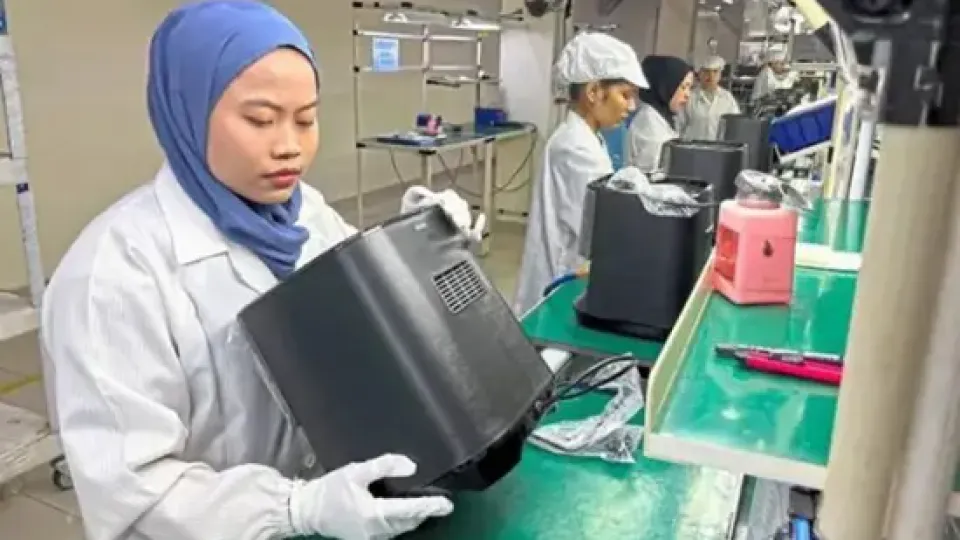
PETALING JAYA – The voluntary Progressive Wage Policy (PWP) aimed at raising wages in tandem with productivity and skill has led to a conundrum of sorts between bosses and workers.
Employers point to what they call an “expectation gap” between both sides, with them preferring productivity to be raised first before any salary adjustment, with workers wanting increased salaries right away.
Associated Chinese Chambers of Commerce and Industry of Malaysia secretary-general Datuk Jeffery Tan, who highlighted the issue, said this scenario was mainly apparent in small and medium-scale enterprises (SMEs).
He said rightfully, employers would expect workers to improve their productivity first before a salary increment is approved.
“But there are situations where the employee expects an increase in salary even before putting in extra effort, as is the case in SMEs.”
He spoke of the risks in granting increments first.
“If a company raises salaries first, can productivity be sustained in the long run?” he asked.
Tan said a company stood to lose out in cost competitiveness if salary increments were not matched with a productivity rise.
Other employers agreed that the challenge of the PWP was ensuring its sustainability.
Without stronger links between wages and productivity or sector-specific incentives, they said the scheme might struggle to gain traction.
Federation of Malaysian Manufacturers president Tan Sri Soh Thian Lai said most companies viewed their participation as a long-term strategy consideration, to ensure sustainability and corresponding increases in productivity.
He noted increasing interest in the scheme with participation being voluntary at this stage, and that it could apply to selected employees instead of across the board.
“Employers are, however, taking a cautious approach to its implementation, given the global and trade environment alongside domestic cost and economic challenges faced,” he said.
Soh said SMEs faced challenges in the PWP such as financial capacity, upskilling and training, as well as worker retention.
“Companies may worry about investing in training and higher wages only to see workers move to larger firms offering better packages,” he said.
He said the PWP must complement and not duplicate existing mechanisms, and urged a review of existing wage guidelines to reflect differences in wage levels across sectors and sub-sectors.
He called on the government to extend incentive support by sector, with longer assistance for industries that needed more adjustment time.
Malaysian Employers Federation president Datuk Dr Syed Hussain Syed Husman said while bosses recognised how the PWP encourages workers to upskill and improve competencies, there were concerns over the link between training and productivity gains.
“In many cases, the impact between training and measurable productivity gains is gradual and depends heavily on the nature of business, industry requirements and whether the new skills are directly applicable to day-to-day operations,” he said.
Syed Hussain said feedback indicated that while some training programmes were valuable, others might not fully align with the actual skill gaps of the company and industry.
“Employers have stressed the need for customised, industry-specific training modules that can show more tangible results,” he added.
He said there were also workers who perceived training as mainly a prerequisite for wage increments rather than it being a long-term career investment.
“This creates challenges in ensuring sustained productivity improvements beyond the initial training,” he said.
Syed Hussain said the PWP’s success depended on training being relevant, industry-driven and able to produce measurable productivity gains to justify wage increases.
He, however, acknowledged that the PWP was a well-intentioned policy to promote fairer wage growth and strengthen Malaysia’s human capital.
“Some members have noted modest improvements in work quality, efficiency, and employee engagement after training.
“While there have been pockets of positive outcomes, employers have not observed a marked and consistent increase in productivity across the board among employees who have undergone training,” he added.
Human Resources Minister Steven Sim said last October that the implementation of the PWP was a new measure to reform the labour market, with various upskilling training programmes for workers carried out to ensure wage rates increased in accordance with their skills and performance.
He also said that for the first time, the ministry will also publish starting salary guidelines for all employment sectors based on the Malaysia Standard Classification of Occupations.
These guidelines will serve as a reference for both workers and employers in determining appropriate starting salary rates for specific jobs.
During the Budget 2025 announcement, Prime Minister Datuk Seri Anwar Ibrahim said following the pilot PWP programme, the scheme will be fully implemented this year with a RM200mil budget to benefit 50,000 workers.

Asia News Network. (2025, September 17). Employers cautious over Malaysia’s new wage policy. Asia News Network. https://asianews.network/employers-cautious-over-malaysias-new-wage-policy/?utm_source=chatgpt.com
- PERKESO reforms ensure comprehensive protection for all workers, says HR Minister
 KUALA LUMPUR: The Human Resources Ministry, through the Social Security Organisation (PERKESO), continues to undertake comprehensive reforms to strengthen social protection for all contributors, including gig workers and foreign workers, says Steven Sim Chee Keong. The Human Resources Minister said that 10 major reforms have been implemented over the past two years to provide more […]
KUALA LUMPUR: The Human Resources Ministry, through the Social Security Organisation (PERKESO), continues to undertake comprehensive reforms to strengthen social protection for all contributors, including gig workers and foreign workers, says Steven Sim Chee Keong. The Human Resources Minister said that 10 major reforms have been implemented over the past two years to provide more […] - KESUMA’s drive for fair work and shared progress
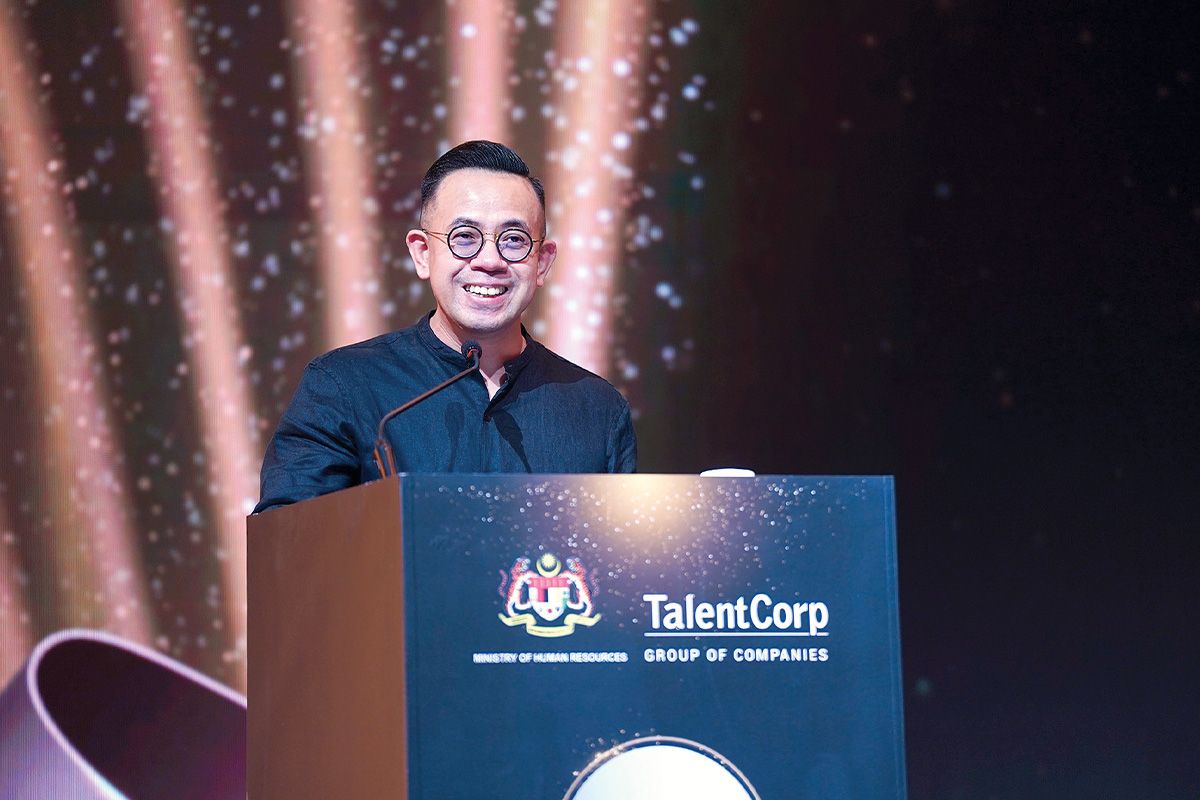 The LIFE AT WORK Awards (LAWA) hosted by Talent Corporation Malaysia Bhd (TalentCorp), celebrates its 10th edition, solidifying its influence as a platform that drives transformation in diversity, equity and inclusion (DEI) in Malaysian workspaces. With concerns regarding human capital rising amid the ubiquity of artificial intelligence (AI), it is crucial now more than ever […]
The LIFE AT WORK Awards (LAWA) hosted by Talent Corporation Malaysia Bhd (TalentCorp), celebrates its 10th edition, solidifying its influence as a platform that drives transformation in diversity, equity and inclusion (DEI) in Malaysian workspaces. With concerns regarding human capital rising amid the ubiquity of artificial intelligence (AI), it is crucial now more than ever […] - ‘Many employers not making mandatory Perkeso, EPF contributions’
 KLANG: The Human Resources Ministry has detected a worrying number of employers still refusing to register or make mandatory contributions to the Social Security Organisation (Perkeso) and Employees Provident Fund (EPF) for their workers. The ministry stressed that such actions violated employees’ rights and denied them basic protection. Deputy Human Resources Minister Datuk Seri Abdul […]
KLANG: The Human Resources Ministry has detected a worrying number of employers still refusing to register or make mandatory contributions to the Social Security Organisation (Perkeso) and Employees Provident Fund (EPF) for their workers. The ministry stressed that such actions violated employees’ rights and denied them basic protection. Deputy Human Resources Minister Datuk Seri Abdul […] - Nearly 500 labour law breach cases detected
 KLANG: Almost 500 investigation papers have been opened against employers for breaches of labour laws as of Nov 1, says Deputy Human Resources Minister Datuk Seri Abdul Rahman Mohamad. Among the most common labour law offences are employers’ failure to make the mandatory contributions to the Social Security Organisation (PERKESO) or the Employees Provident Fund […]
KLANG: Almost 500 investigation papers have been opened against employers for breaches of labour laws as of Nov 1, says Deputy Human Resources Minister Datuk Seri Abdul Rahman Mohamad. Among the most common labour law offences are employers’ failure to make the mandatory contributions to the Social Security Organisation (PERKESO) or the Employees Provident Fund […] - MOHR Won’t Tolerate Companies Preventing Workers From Forming Union
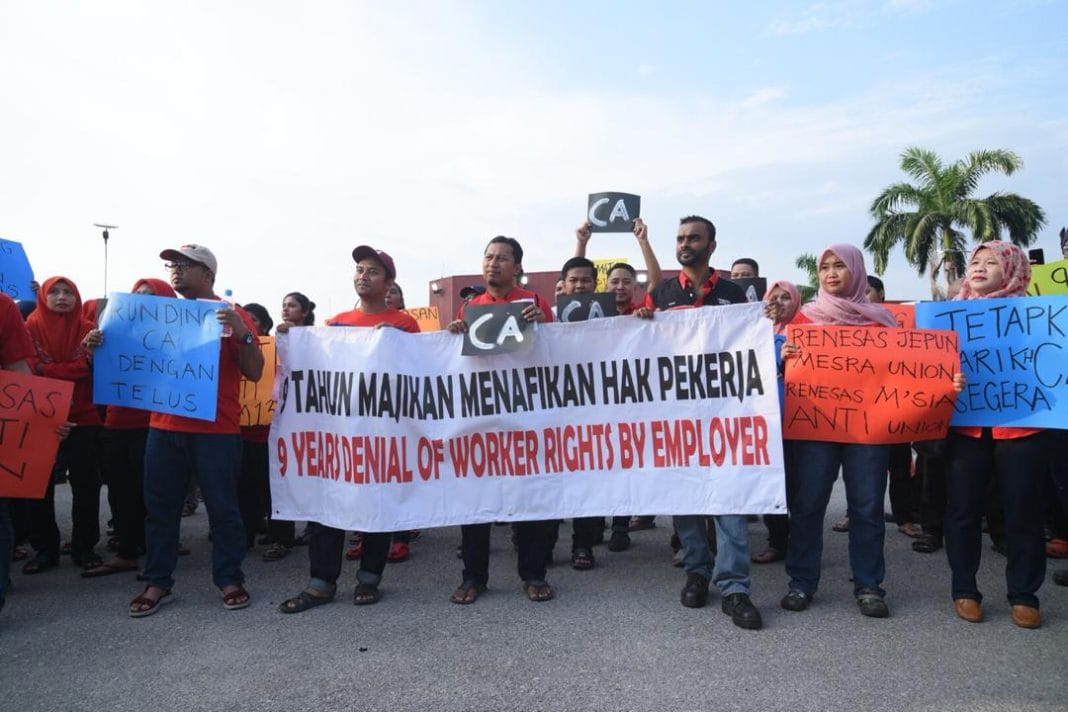 The Industrial Relations Department of the Human Resources Ministry (MOHR) has reaffirmed its commitment to safeguarding workers’ rights after a gathering and memorandum submission by several labour unions concerning alleged union-busting practices. The department emphasised that it respects the constitutional right to peaceful assembly and freedom of speech, while reiterating that workers’ rights to form […]
The Industrial Relations Department of the Human Resources Ministry (MOHR) has reaffirmed its commitment to safeguarding workers’ rights after a gathering and memorandum submission by several labour unions concerning alleged union-busting practices. The department emphasised that it respects the constitutional right to peaceful assembly and freedom of speech, while reiterating that workers’ rights to form […] - Court Orders Employer To Pay 93 Migrant Workers Outstanding Wages
 Human Resources Minister Steven Sim Chee Keong has welcomed the Shah Alam High Court’s decision to uphold an earlier ruling by the Labour Court, ordering an employer to pay outstanding wages to 93 migrant workers who were left without work upon arrival in Malaysia. The High Court on 31 October 2025 affirmed the Labour Court’s […]
Human Resources Minister Steven Sim Chee Keong has welcomed the Shah Alam High Court’s decision to uphold an earlier ruling by the Labour Court, ordering an employer to pay outstanding wages to 93 migrant workers who were left without work upon arrival in Malaysia. The High Court on 31 October 2025 affirmed the Labour Court’s […] - No tolerance for employers who withhold wages, says HR Minister
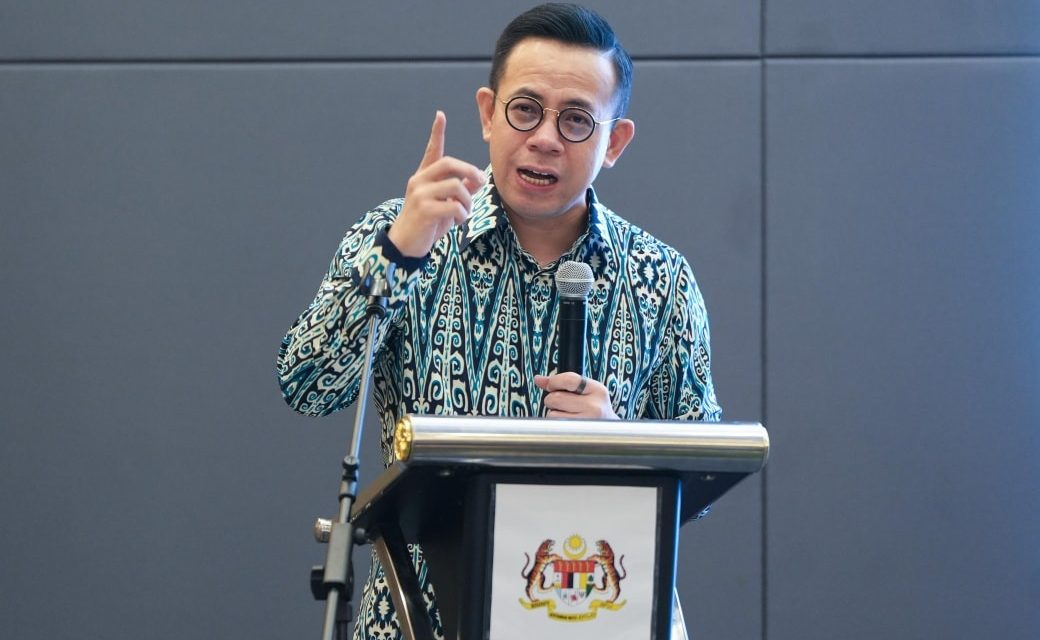 The Ministry of Human Resources (KESUMA) has urged all employers to take heed of the recent Shah Alam High Court ruling which upheld a decision in favour of 93 migrant workers in an unpaid wage case. Human Resources Minister Steven Sim Chee Keong said the Oct 31 decision sends a strong message that failure to […]
The Ministry of Human Resources (KESUMA) has urged all employers to take heed of the recent Shah Alam High Court ruling which upheld a decision in favour of 93 migrant workers in an unpaid wage case. Human Resources Minister Steven Sim Chee Keong said the Oct 31 decision sends a strong message that failure to […] - THE HEART WORK REVOLUTION
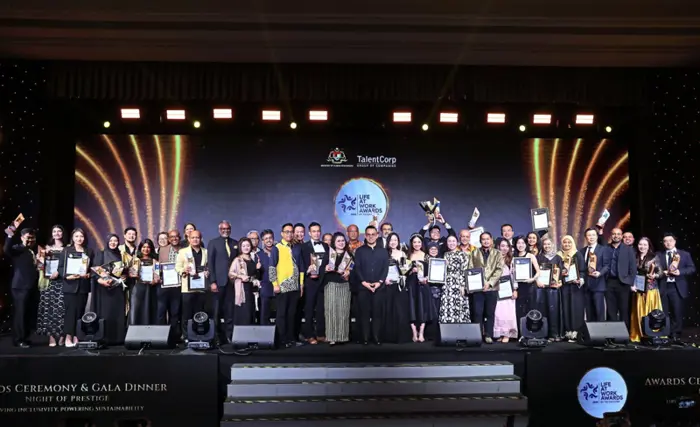 TEN years after its inception, the Life at Work Awards (LAWA) 2025 marked not just a milestone but a movement that celebrates how Malaysia’s workplaces are evolving with compassion, flexibility and purpose. Hosted by Talent Corporation Malaysia Bhd (TalentCorp), the gala night honoured organisations leading the way in shaping a fairer, more progressive, human-centred world […]
TEN years after its inception, the Life at Work Awards (LAWA) 2025 marked not just a milestone but a movement that celebrates how Malaysia’s workplaces are evolving with compassion, flexibility and purpose. Hosted by Talent Corporation Malaysia Bhd (TalentCorp), the gala night honoured organisations leading the way in shaping a fairer, more progressive, human-centred world […] - Group wants clear framework, pilot projects before expanding EIS to gig workers
 PETALING JAYA: The Malaysian Industrial, Commercial and Service Employers Association (Micsea) has called on the government to set a clear policy framework and run pilot projects before expanding the Employment Insurance System (EIS) to gig and platform-based workers. The association said the plan, announced by human resources minister Steven Sim in the Dewan Rakyat on […]
PETALING JAYA: The Malaysian Industrial, Commercial and Service Employers Association (Micsea) has called on the government to set a clear policy framework and run pilot projects before expanding the Employment Insurance System (EIS) to gig and platform-based workers. The association said the plan, announced by human resources minister Steven Sim in the Dewan Rakyat on […] - Employer group seeks clarity on foreign worker pay rules after court ruling
 KUALA LUMPUR (Nov 3): The Malaysian Industrial Commercial & Service Employers Association (MICSEA) is calling on the Ministry of Human Resources (MOHR) to issue clear and structured guidelines on wage payment timelines for foreign workers, following a recent court ruling that employers must pay wages from the moment these workers arrive in Malaysia. The call […]
KUALA LUMPUR (Nov 3): The Malaysian Industrial Commercial & Service Employers Association (MICSEA) is calling on the Ministry of Human Resources (MOHR) to issue clear and structured guidelines on wage payment timelines for foreign workers, following a recent court ruling that employers must pay wages from the moment these workers arrive in Malaysia. The call […]
